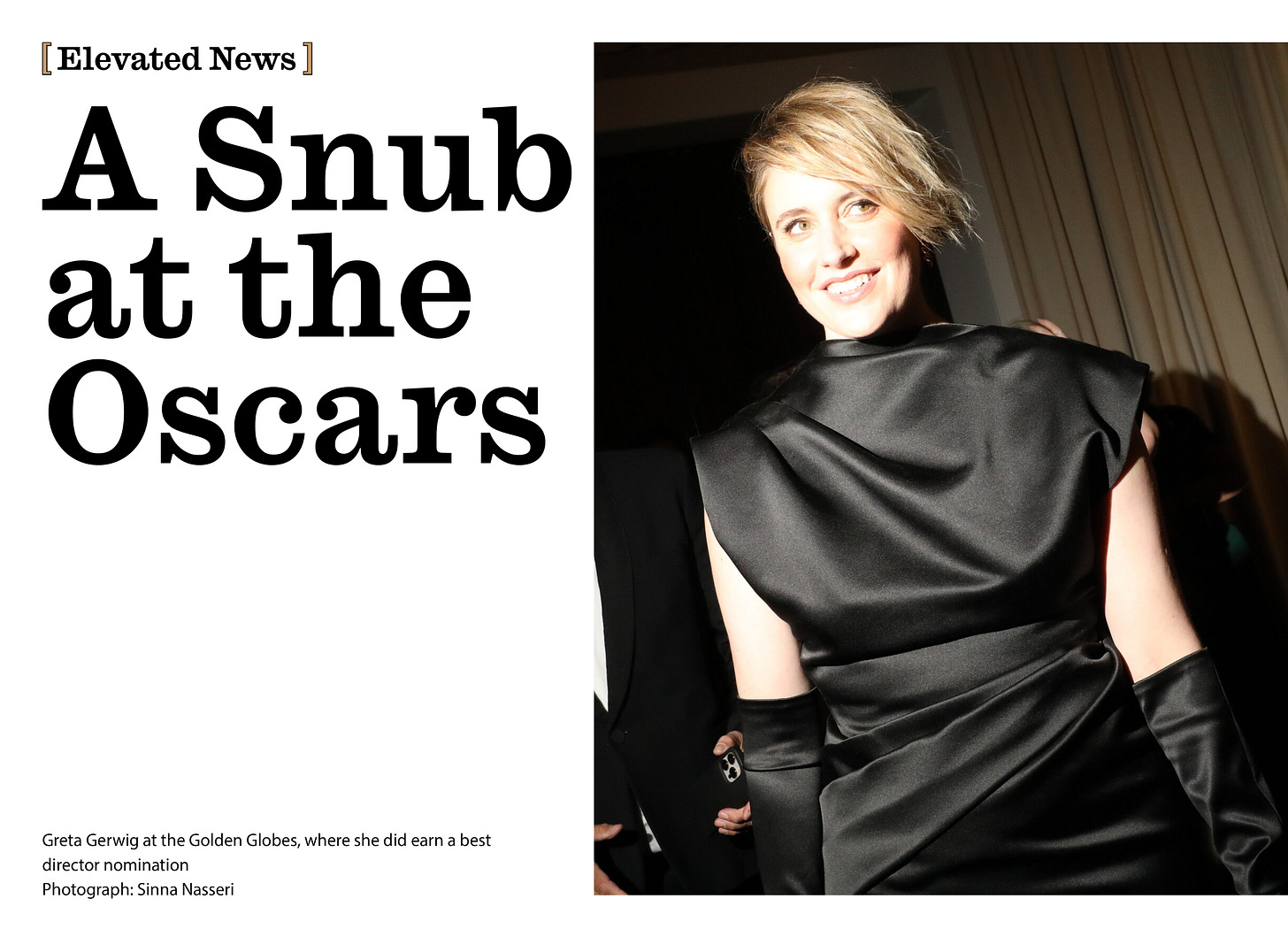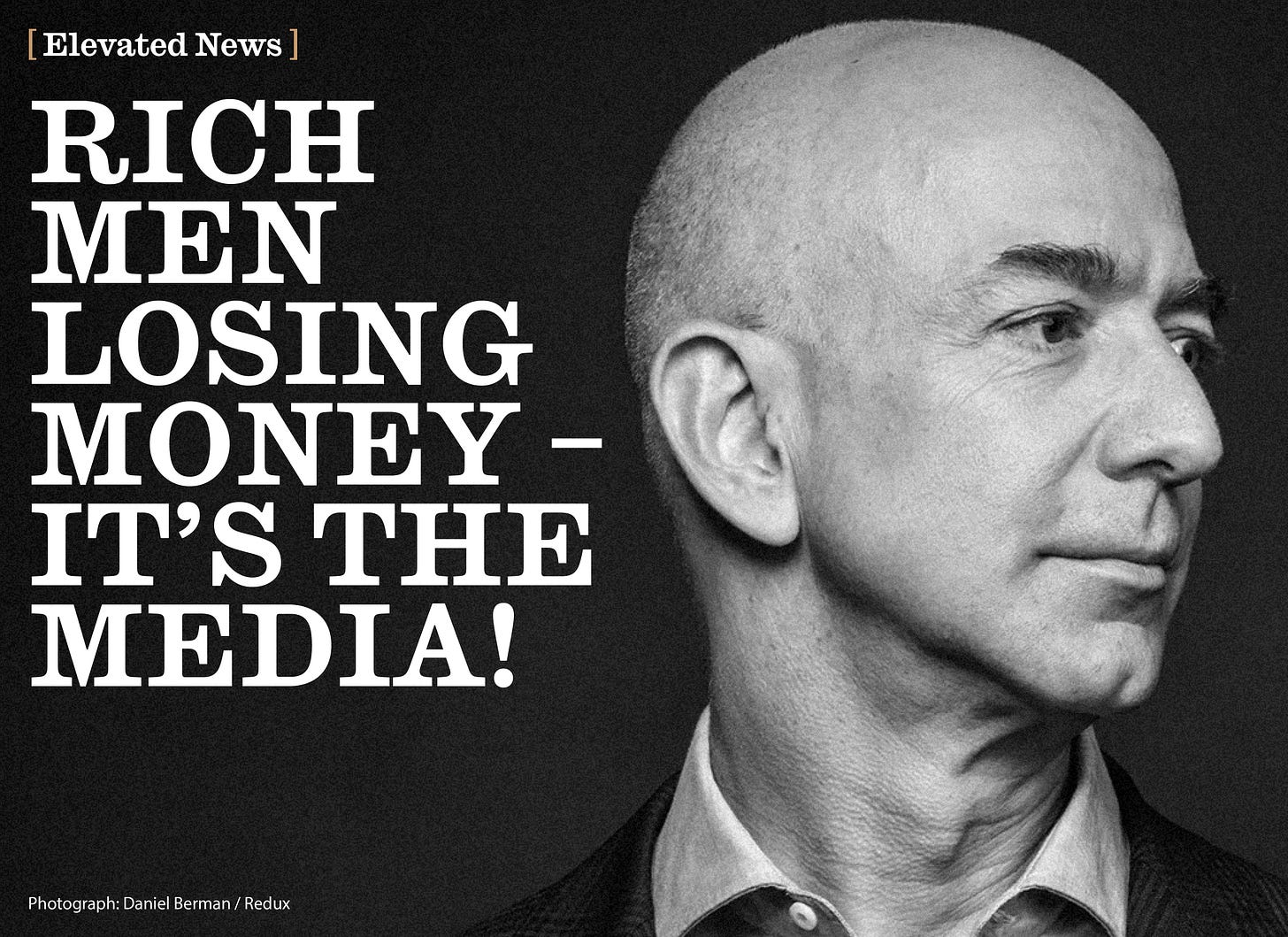Issue 46 ☞ A Snub at the Oscars
And - Rich Men Losing Money – It's The Media!
The Barbie director Greta Gerwig, who earlier this year became the first woman with sole director credit to have a film earn over $1 billion at the box office, has been snubbed by the Oscars: on Tuesday, her name was missing from this year’s Best Director nominations. Margot Robbie, Barbie’s lead, was also overlooked, for Best Actress, though Ryan Gosling received a nomination for Best Supporting Actor, and the film has been nominated for Best Picture and Best Screenplay. (It has eight nominations in total, two for songs.) In the New Yorker, Michael Schulman called Barbie “the biggest move of last year,” and yet... In the New York Times, Kyle Buchanan wrote, “The snub had many in Hollywood scratching their heads.” How could the women behind such a successful commercial and critical hit be omitted from such a high profile list?
The answer, perhaps, isn't too complicated. The Academy has a history of overlooking comedies, and of nominating films it feels fit a certain bill. Oppenheimer, the Christopher Nolan epic, starring the Irish actor Cillian Murphy, received 13 nominations, for example, including for Best Picture, Best Director, and Best Director. How does one critical and public success earn so many nominations, and another similarly successful picture earn far fewer, and particularly in crucial categories? “Oppenheimer looks a lot more like a traditional Oscar winner,” Schulman wrote. “It’s about a real historical figure; it has obvious gravity; and it’s made by and about men. In other words, it doesn’t have jokes, and it’s not pink.”
In 2013, the Amazon chairman and multi-billionaire Jeff Bezos bought the Washington Post, one of the most respected media brands in the US for $250 million. A few years later, the Los Angeles Times was sold to Dr. Patrick Soon-Shiong, another billionaire, this one in tech, for $500 million. The sales ushered in a new age in media leadership, an era of rich men owning newspapers and newspaper magazines (Time was also bought around the same time). Staffers in newsrooms were hopeful but apprehensive, according to the New York Times. Their previous employers had been losing money for years. Big legacy news brands are struggling across the planet. Could a bunch of billionaires really save them?
According to the Times, perhaps not. "It increasingly appears that billionaires are struggling just like nearly everyone else. Time, the Washington Post and the Los Angeles Times all lost millions of dollars last year, people with knowledge of the companies' finances have said, after considerable investment from their owners and intensive efforts to drum up new revenue streams." Earlier this week, the Los Angeles Times announced huge layoffs; its editor announced his resignation last week, citing editorial differences with the paper's owner. Where does that leave the media? Without a viable future –– which is the same future it was facing before the billionaires took over. Even money can't save the news.
Certified Recs
What to eat, wear and watch this week
What to eat
Korean Grill, Kensington
What to wear
Dark, chestnut-brown suede bomber worn by Renton (played by Ewan McGregor) in 1996 film Trainspotting
What to watch
the 2012 Kathryn Bigelow thriller Zero Dark Thirty, starring Jessica Chastain



